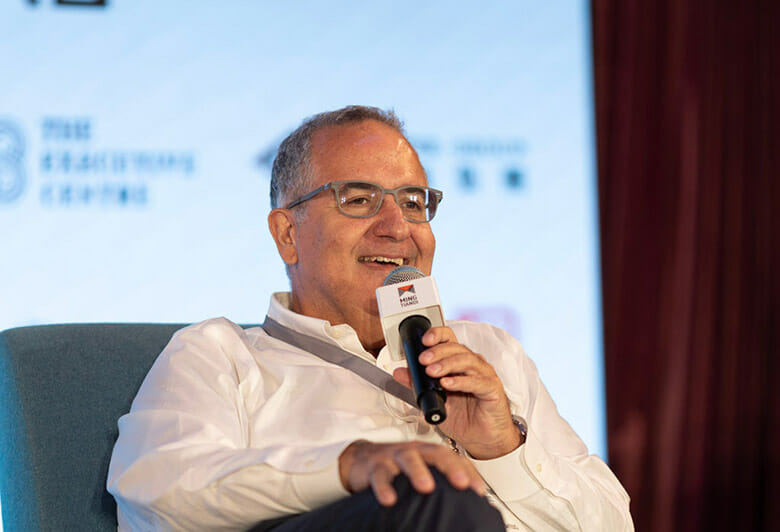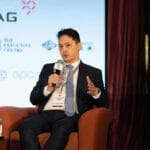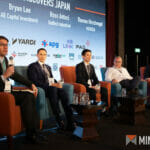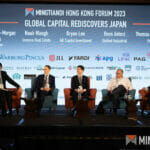Japan’s low interest rates and stable domestic real estate market continue to attract global investors, according to industry veterans who spoke in a forum hosted by Mingtiandi on Tuesday.
At the conference a panel of experienced Japan investors, comprising Noah Wangh, managing director and head of transactions for Asia Pacific at Invesco; Bryan Lee, founder and chief financial officer of AB Capital Investment; Ross Antoci, managing director and owner of Unified Industrial; and Thomas Hirschvogel, APAC regional head at Patrizia, explained some of the challenges and opportunities in Asia’s second largest economy.
“Japan is certainly toward the top of our list in terms of markets where we hope to continue deploying both value-add as well as core capital. I think the biggest challenge is… it is competitive,” Invesco’s Wangh said during the panel on Tuesday, which was brought to you by Yardi.
For Lee, who oversees the firm’s portfolio of four hotels in Tokyo and Osaka, the two cities continue to be the company’s focus markets due to their favourable demographics, with the Hong Kong-based company optimistic about opportunities to acquire more assets.
*I definitely think we want to expand… Even some of our investors and LPs (limited partners) have been telling us they want to double down but I don’t want to grow too fast. I just want to choose the right projects, the safety, the certainty that’s involved with just getting the fixed yield, fixed dividend yield, I’m happy with that,” he said.
Attracting Global Investors
The panelists agreed that overseas investors continued to play an increasing role in Japan’s real estate market.

Ross Antoci Unified Industrial
Moderating the panel, David Green-Morgan, MSCI’s head of real assets research, said the volume of global capital entering the country has increased from about 20 percent of total cross-border transactions historically to over 30 percent over the last three to four years.
“[Japan] has always been one of the favored destinations for both regional and international capital in Asia Pacific. Probably alongside Australia, it tends to be the first port of call for many initial investors,” he said, noting that the ultra low interest rate environment made it more appealing to investors especially at a time other developed markets continued to raise rates.
Antoci, one of two founders of Unified Industrial, a Tokyo-based developer backed by Australia’s Macquarie Asset Management, said Japan’s logistics market has also seen a surge in overseas capital.
“The logistics space has pretty strong fundamentals in terms of demand and supply and so I think those are the factors that investors are seeing and finding appealing, (as well as) the geopolitical environment (and) the ease of doing transactions in Japan when you have a Japan team, it’s fairly straightforward,” he said.
On the micro level, he said the demographics of the country’s top metropolitan areas – the Greater Tokyo Area and the Greater Kansai Area around Osaka – also bode well for last-mile logistics given their combined population of around 60 million people.
Rediscovering Japan
In the residential segment, Hirschvogel said the country’s mature multifamily market has been a major consideration for Patrizia to bring its operations to Asia starting from 2016.
Having a local team on the ground is key to having successful operations in Japan, Hirschvogel said, while the country’s well-developed property management sector contributes to provide efficient management of rental apartments.
“(Around 2016) that was maybe the first discovery of the multifamily market (in Japan) for German and international investors coming in. And now you see a rediscovery,” he said. “If you look into the rest of the world, Japan is a very happy place. You don’t see the valuation change as you have in Europe so Japan seems very steady.”
Last November, the German asset manager launched its €1 billion ($1.03 billion) Japan-focused fund to acquire core and value-add multi-family assets across the country’s top cities.












Leave a Reply